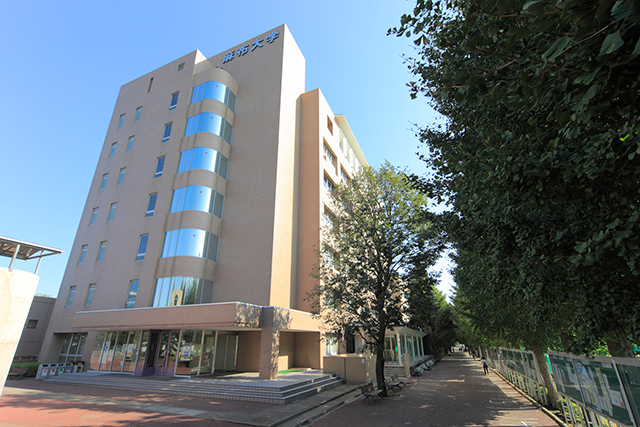Professor Kazuhiro Kawai of the Department of Veterinary Medicine, Faculty of Veterinary Medicine, Azabu University opened the endowed course "AMR Surveillance Laboratory (AMRSL)" with Meiji Seika Pharma Co., Ltd.Return results to society by conducting research on drug resistance (AMR).
In recent years, there has been increasing interest in drug resistance worldwide, and the World Health Organization (WHO) World Action Plan on AMR also states that optimizing the use of antimicrobial agents is one of the goals.In addition, Japan's "Domestic Action Plan on Drug Resistance" has the main goals and strategies of proper use and responsible and careful use of antibacterial drugs in the fields of livestock, fisheries and veterinary medicine.Careful use of antimicrobials, especially on livestock farms, is strongly sought after as a measure against the global spread of drug resistance in the veterinary and human medical fields.However, the current situation and countermeasures are still in the middle of the road, and further investigation is needed.
Therefore, in this endowed course, samples derived from livestock diseases or breeding environments nationwide will be collected, the drug susceptibility tendency of isolated strains and the possession status of drug resistance genes will be investigated, basic data will be accumulated, and antibiograms will be created. By doing so, we will seek ways to deter AMR.In addition, Meiji Seika Pharma will develop research with the cooperation of providing technology for mycoplasma culture / drug susceptibility testing technology and mass sample processing technology, and providing a network with customers that can be accessed all over the country.
Specifically, first of all, strains derived from bovine pneumonia, mastitis, and pig enteritis were collected, and the minimum inhibitory concentration (MIC) of the antibacterial drug against the collected strains was measured while measuring the drug-sensitive disc. Investigate the relationship with the block circle.Furthermore, we are thinking of formulating the criteria for the disc method for selecting antibacterial agents that can be used in the field in cooperation with related organizations in the country.
Professor Kawai's research team has a track record of formulating criteria for the disc method for cow's breast inflammation under the commission of the Ministry of Agriculture, Forestry and Fisheries, and plans to continue to work enthusiastically on this issue.At the same time, we will continue the following activities that are conscious of SDGs.
<Efforts for SDGs>
SDGs12 "Responsibility to make and use": In order to realize safe and secure dairy product production, we are seeking to develop alternatives to antibacterial drugs that can prevent residual antibacterial drugs.
SDGs2 "Zero hunger", 15 "Let's protect the abundance of land": Aiming for sustainable agriculture, think about reducing the use of antibacterial agents and animal welfare for the health and environmental protection of livestock.
SDGs3 "Health and Welfare for All": Contribute to the realization of a One Health approach to solving drug resistance problems.
SDGs4 "Quality Education for Everyone": Advanced education for students to realize high quality veterinary education.
SDGs17 "Achieve goals through partnerships": Promote industry-government-academia efforts to make academic information dissemination and outcome exits more practical.
Reference: [Azabu University] Azabu University, endowed course: AMR Surveillance Laboratory opened

